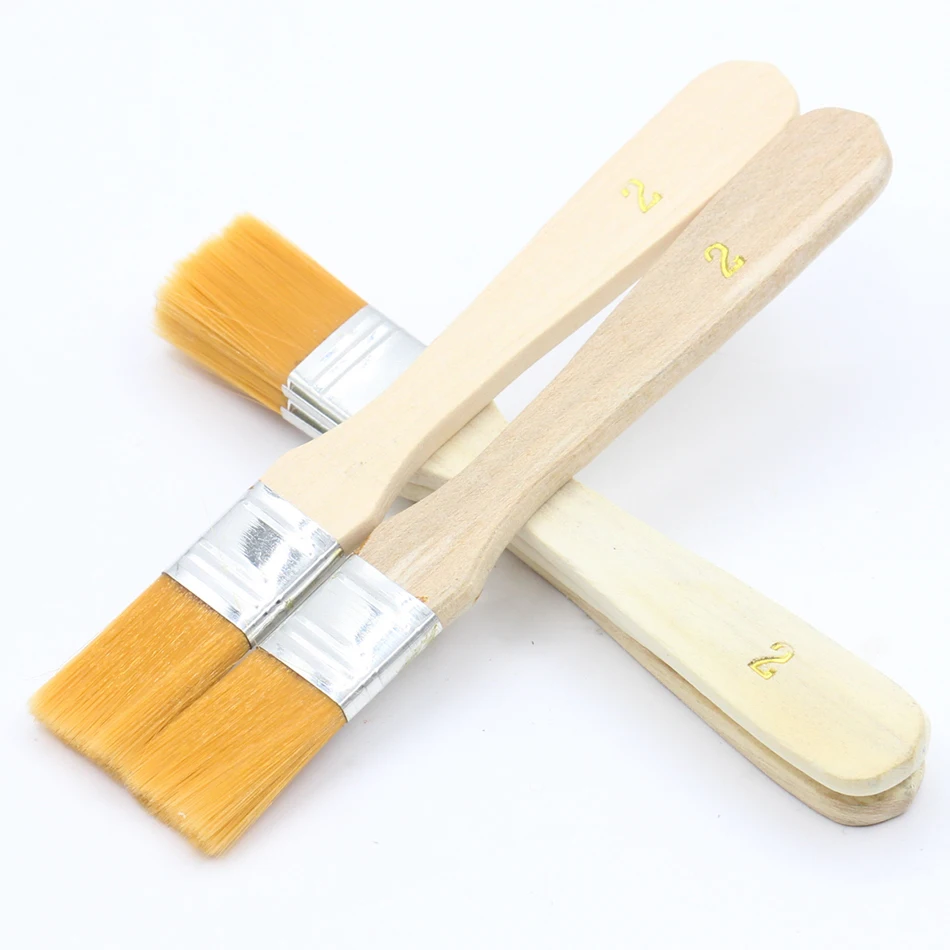Um, except when you’ve just completed a painting project and it’s time for clean up. Because the delicate balance of biological elements in your septic tank can be severely upset by paint, cleaning your brushes, rollers and even your hands in the sink is a no-no. Well, you can use mineral spirit/ liquid fabric solution/ vinegar solution/paint thinner and let the brush soak on it. Then just wait patiently for 20-60minutes and bring it out. Now, just wipe off the excess solution and let it air dry. And you’re all good.
- Cleaning Paint Brushes In Sink
- Cleaning Paint Brushes Latex
- Cleaning Paint Brushes With Paint Thinner
- Cleaning Paint Brushes And Rollers


Haven't any of you had any professional training at all?
I don't want to steal your thunder Kelly, but this is not Best Practice.
Don't ever put paint thinner into plastic. It will melt most kinds. Why risk a mistake? Old glass salsa jars exist for brush cleaning. label one, put some glass marbles like the flower arranging ones into the bottom to work the brush against. (Plain, not coated with shiny stuff. It'll dissolve) Trying to clean oil based paints out of brushes by just stirring them around doesn't work. If you're desperate a crumpled piece of window screen will work too but it's hard on bristles so this is not a default. Paint thinner is very flammable and an ugly toxin so you want to keep it stingy and the stuff needs to go to Hazardous Waste Disposal. Wipe those brushes really well!
If you're doing fine arts painting go buy a proper brush cleaning pot. A big size one would be good for pro house painters. Solvent sits in it for weeks and it has a sieve to work the bristles over. Paint solids drop below it. The top keeps fumes in and evaporation almost nill over weeks. Minimal exposure, clean brushes. Now wash them! I wash up to thirty brushes a day in the studio; it's just doing the dishes.
Do NOT use a surfactant/ detergent 'soap'. Use a real soap, a chemically designated soap, with oil or fat in it. You can put it on a cellulose sponge and work the brushes across it to work up a lather, or just work them against your palm. If you use bar soap swipe the brushes across it. The soap cuts the oil, and the fat base conditions the bristles.If you wiped out the paint and rinsed in thinner properly there's very little to wash out. More like a post gym shower then wrestling gunk. You don't want paint in a sink drain or on the back patio. Rinse well. If you do this correctly you'll get to wear brushes out instead of throwing them away. And bristles are chosen for this exposure so they'll get better. It's just like washing your hair. Squeeze out the water and shape them, air dry.

This works for synthetic brushes too. Do not leave soap in the bristles as it will contaminate your paint next time and make a bad paint film. As for exotic paints like epoxy? Yes, use nitrile gloves and a respirator! Outside. But if the stuff is hydrocarbon based a fat soap should work too. Acetone on brushes will kill them fast, so make sure thats a really Best Practice. Again- a soap may work better. Most bristles need the conditioning.
If your brushes start to get that gunky icky feeling, soaking them in that inexpensive liquid oil soap from the grocery store (Also best for regular washing after painting) is like a spa treatment. Leave them in for two or three days. It's magic! Paint in the ferules is a ruined brush, but as regular maintenance this is amazing. I have ten year old mongoose thats still sweet. I also paint a lot.

Do not use soap on watercolor brushes. Just rinse.
This is the method professional painters use; It keeps solvent use to an absolute minimum. Reusing a cup or 12 ounces of thinner instead of blowing through gallons of it reduces exposure and that stuff has lead in it. Among other scary things. Don't use it on skin either. Paint'll fall of in 48 hours if soap or olive oil doesn't get rid of it.
Even if you use a thinner only system like the guys who paint cars using industrial paints, a cleaning pot will use less thinner and reduce your chemical exposure. They can be used in series. You can eyeball them at the big online art supply stores, and I shop at industrial supply so don't think they don't interchange. ;-D I'll try to post instructions for the homemade version.
Glidden Team:
What should you use to clean paint brushes and supplies?Product Manager and PPG Paint Specialist:
For latex paint, clean tools with warm soapy water. Contact your local environmental regulatory agency for guidance on disposal of unused product. Do not pour down a drain or storm sewer.
Oil-based paint clean-up requires solvent such as paint thinner, mineral spirits, or acetone. Be sure to clean and dry brushes thoroughly at the end of each day.
When drying your brushes, try to hang them or set them upright in a can or container. Avoid laying your brushes flat on a surface that could impede their ability to completely dry.
Cleaning Paint Brushes In Sink
Cleaning Paint Brushes Latex
Glidden - we’re helping take the pain out of painting.Cleaning Paint Brushes With Paint Thinner
As always, please refer to the Product Label, Technical Data Sheet and Safety Data Sheet for safety and detailed application instructions.Cleaning Paint Brushes And Rollers
